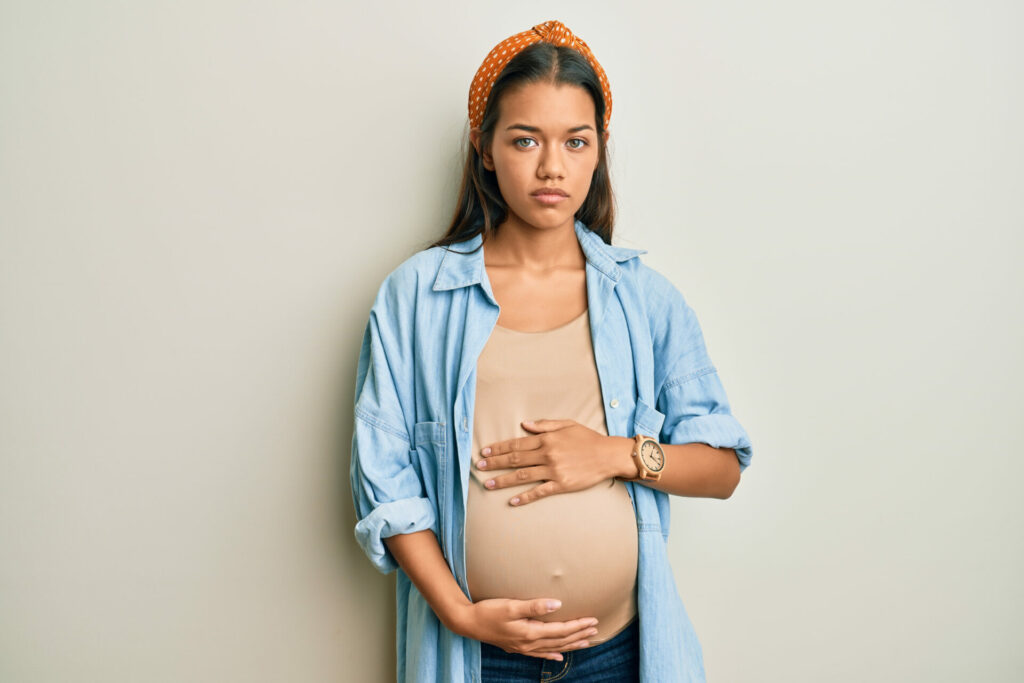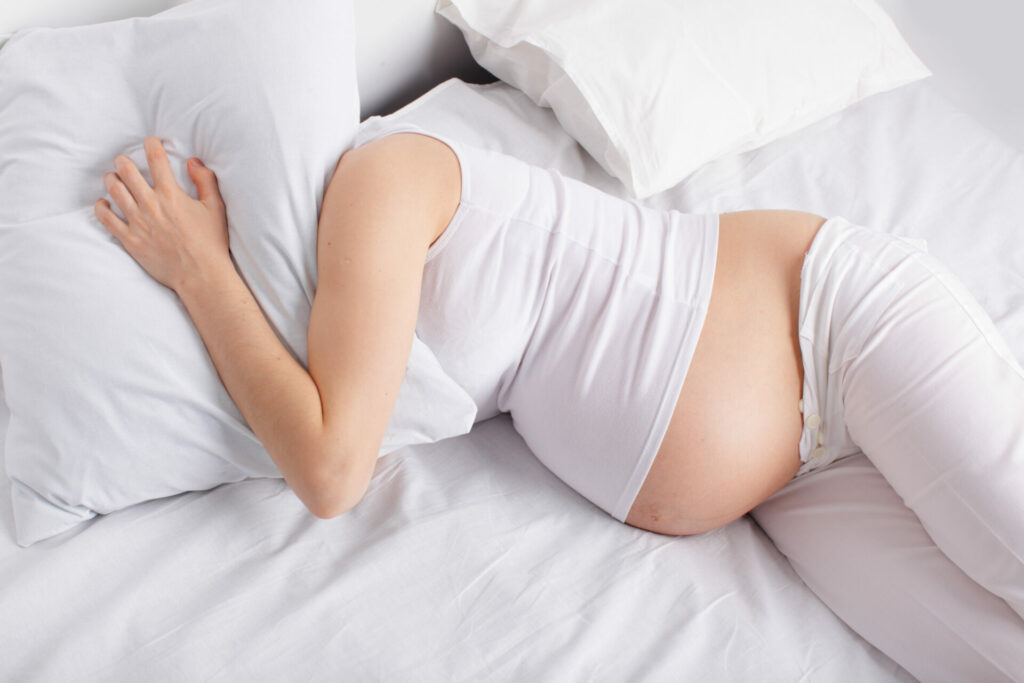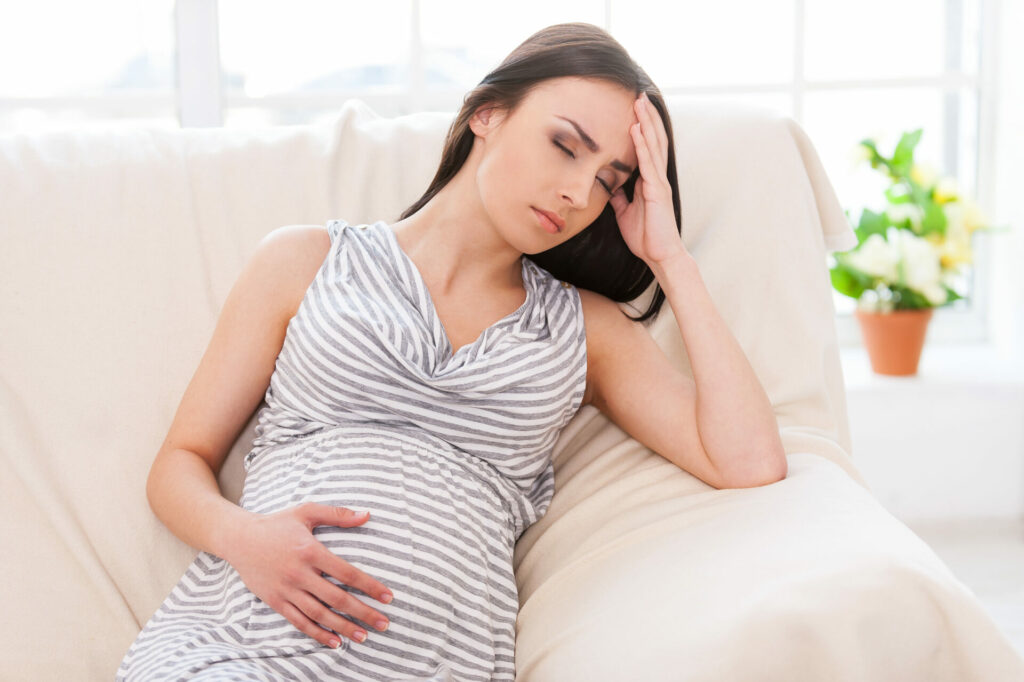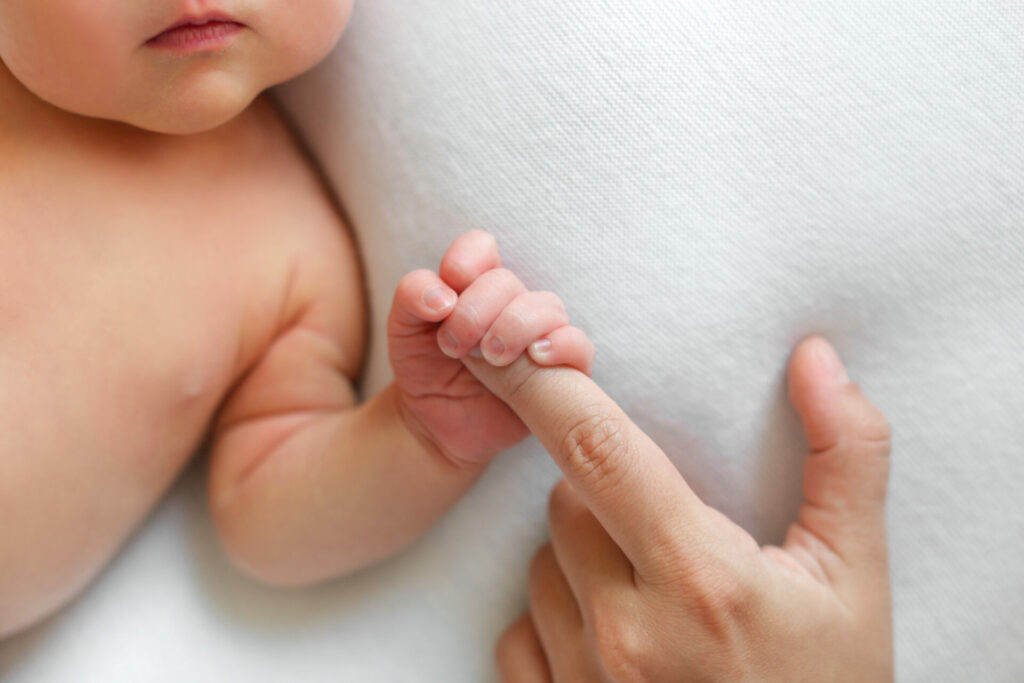Pregnancy is the start of new beginnings and an exciting journey to motherhood. But while most of us are delighted to be smothered with well wishes, being pregnant can also create a range of feelings that may not match up to those squeals of congratulations.
The pressure to feel good and happy might make some women genuinely nervous. While everybody around you is bubbling with baby talk, perhaps you’re finding this difficult, and confused as to why. In reality, you’re tired. First trimester fatigue can be intense, and if that happens to be partnered with nausea, you’ll want to hide away and take any chance possible to sleep.
But for some women there’s something else making them sad, and even terrified – and, above all, they just wish they could be one those women who loves being pregnant.
Antenatal Depression

If this is you don’t judge yourself. Do not feel guilty. While we’ve all heard of the baby blues or postnatal depression, you could be suffering from antenatal depression, a recognised mental health condition that happens before the birth of a baby while you’re pregnant.
Antenatal depression affects around 10 per cent of pregnant women. However, many suffer in silence, which sadly increases the chances of having postnatal depression. While postnatal depression is now well documented with important conversations continuing to develop, a louder voice must be given to antenatal depression.
Symptoms include feeling sad, hopeless, and tearful. You might get irritable and even angry easily, then feel overcome with guilt. Perhaps you’ve lost interest in other people and the world around you, and can focus only on blaming yourself for your problems. It won’t help that you won’t want to eat much, or maybe you want to eat more than usual. Your concentration is bad. Making a decision has become impossible. And on top of all that, you might be consumed with negative thoughts: If I’m feeling like this, how will I ever be able to look after my baby?
Antenatal depression affects around 10 per cent of pregnant women but many suffer in silence, which sadly increases the chances of having postnatal depression
The good news is, professional help is available to support you. ‘Depression during pregnancy is very much a thing,’ says registered UK midwife Charlotte Mills. ‘And it is really common. Your body is dealing with so much physically that it impacts your mental health.’
Alana, a Dubai-based mother of two, had never heard of antenatal depression until her sister fell pregnant and her mood spiralled downwards. ‘She was not herself at all,’ Alana told The Ethicalist. ‘She had been trying to get pregnant for a while and was delighted to see the two blue lines on the pregnancy test. But within a few weeks, she wouldn’t leave the house. She didn’t want to see anybody, do anything, and had overwhelming feelings of anxiety.’
Hormonal Shift

Charlotte reassures women that antenatal depression usually lifts at around 12 weeks when a big hormonal shift happens at the end of the first trimester. ‘It’s quite mechanical in a way,’ she says. ‘Chances are the depression will go. So it’s important to put a structure in place to ensure the bulk of household chores and childcare is done by the woman’s partner, family or close friends.’
So, what causes antenatal depression? There are a variety of triggers, but there is no one cause of antenatal depression. It does not have to have a ‘reason’ to happen. Every woman and every pregnancy is unique. You might suffer from depression in one pregnancy, but not feel the same way with a past or future pregnancy or you could be prone to it with every pregnancy.
Psychotherapist Rachel Buchan specialises in antenatal depression counselling, and believes that women who have experienced depression in the past can be more at risk. ‘However, antenatal depression can also affect those with no previous history,’ she says. ‘The physiological ‘condition’ of simply being pregnant automatically brings with it hormone changes, which will have a differing effect on each woman. The simple fact of this balance changing can trigger antenatal depression.’
Inevitably, all women’s bodies will change during pregnancy, but specific changes vary from woman to woman. Some might find this daunting. This can range from a woman who has suffered from eating disorders and body image vulnerability, to those who have been comfortable with their physicality and are now experiencing a confidence crisis.
‘The physiological ‘condition’ of simply being pregnant automatically brings with it hormone changes, which will have a differing effect on each woman. The simple fact of this balance changing can trigger antenatal depression’
For first-time mothers-to-be, the unknown can be frightening: will I lose my baby, will childbirth hurt, will my partner still find me attractive, and how will my body change and is that forever or will it go back to the way it was before?
Life roles and responsibilities are also on the brink of change. Rachel Buchan reminds women that this is understandably triggering as a pregnancy can bring about ‘fears fears and concerns about a shift to your life that you may not have been expecting or prepared for.’
Pregnancy Fears

Money worries can surface along with anxiety about your job and career and niggling fears about how to tell your boss or keep your business afloat. ‘Pregnancy may trigger memories of your past, of the way in which you were parented and fears about being a parent,’ Rachel adds. Or maybe if you have relationship problems, you might feel that things will only get worse during your pregnancy.
So many women are ashamed of depression, especially when pregnant, but there are so many spiralling pathways, it must be recognised that the road into motherhood is not easy.
UAE-based business owner Reem has three children, and experienced antenatal depression during her second pregnancy. ‘My first pregnancy was pretty straightforward,’ she says. ‘But there were complications during labour and I was rushed into surgery for an emergency Caesarean.
‘Everything turned out fine – I had a healthy baby girl – but I became very anxious about having another baby in the future. I was terrified of another complicated labour. When I discovered I was pregnant again, I couldn’t enjoy it at all. I felt like I was about to destroy my daughter’s life by giving her a sibling.’
So many women are ashamed of depression, especially when pregnant, but there are so many spiralling pathways, it must be recognised that the road into motherhood is not easy
Rachel says that past trauma can cause depression because ‘this pregnancy is triggering worries or concerns based on those previous experiences.’ But most problems can be overcome. Reem had a planned C-section with her second pregnancy and her daughter was filled with adoration for her new baby brother – so much so that she gave her another one!
‘I didn’t suffer from depression during my third pregnancy,’ Reem says. ‘I had anxiety and worries but nothing like the dark hole I fell into while expecting my older son.’
Late Onset Antenatal Depression

It’s worth noting that while antenatal depression can start right at the beginning of a pregnancy, it can also develop later on. UK-based pregnancy charity Tommy’s recently helped Abby who suffered from depression at seven months pregnant.

Once her baby was born, her mood lifted considerably, but she still had very low days, too. ‘Be mindful of the fact that one morning you wake up feeling OK and another morning you might not,’ Abby says. ‘It goes in peaks and troughs. The period that you feel OK gets longer and longer and those bad days get further and further apart and you start to feel much better.’
Midwife Charlotte agrees. ‘It will pass,’ she says. ‘Even reading statistics on this condition and about how common this is can potentially ease negative feelings of vulnerability and isolation.’ Accessing the right support is vital, and your local midwifery team should be contacted for advice and next steps.
But all the mothers, even those with the most overwhelming depression, admit it’s worth it to have their babies. ‘I was so down and in the depth of despair,’ says Abby, ‘but then I took one look at my gorgeous baby and didn’t regret having them for a second as they were the best thing to ever happen to me.’









